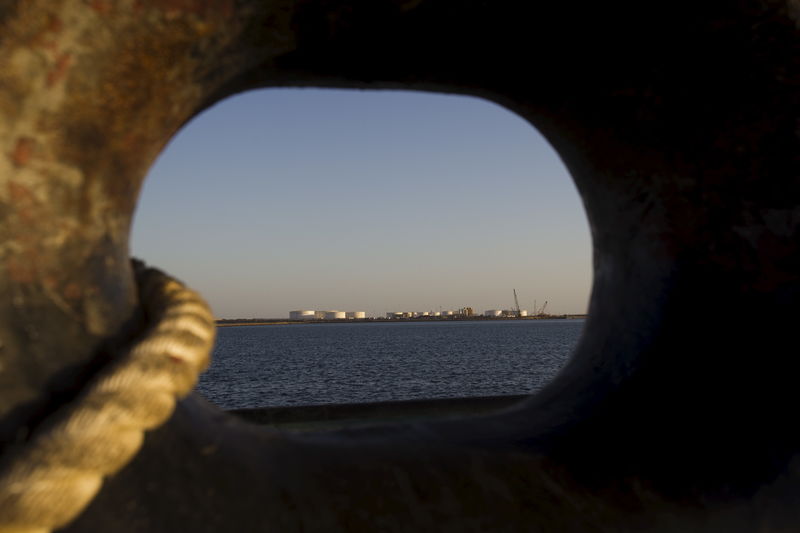Instacart downgraded as competition tightening grip on online grocery
* China reports uptick in new coronavirus cases
* U.S. services, manufacturing sectors stall in February
* Russia says early OPEC+ meeting no longer makes sense
Interactive graphic on coronavirus: https://tmsnrt.rs/2GVwIyw
(New throughout, updates prices, market activity and comments)
By Swati Verma
BENGALURU, Feb 21 (Reuters) - Oil prices slid more than 2%
on Friday as investors fretted about crude demand being pinched
by the economic impact of the coronavirus outbreak, while
leading producers appeared to be in no rush to curb output.
The latest signs of infections outside the Hubei province
epicentre spurred a selloff across financial markets, as G20
policymakers travelled to Saudi Arabia for talks on the global
economy. Brent crude LCOc1 was down $1.32, or 2.2%, at $57.99 a
barrel by 10:52 a.m. EDT (1552 GMT), on track for its biggest
daily decline in nearly three weeks. U.S. crude CLc1 dropped
96 cents, or 1.8%, to $52.92.
"It's safe to say that uncertainty (surrounding coronavirus)
has returned with a vengeance," said Ole Hansen, head of
commodity strategy, Saxo Bank.
"We have to acknowledge that we're dealing with the biggest
demand shock since the financial crisis... Until we see China
getting back to work, the virus will be the main focus."
In the latest evidence of the economic hit from the virus,
U.S. business activity in both the manufacturing and services
sectors stalled in February. Concerns over the virus have also largely overshadowed risks
to supply, including the latest blockade in Libya, said Edward
Moya, senior market analyst at OANDA in New York.
The United Nations on Friday said ceasefire talks were back
on track between forces fighting over Libya's capital, days
after the internationally recognised government pulled out of
negotiations. An agreement between the fighting parties could end outages
of about 1 million barrels per day of Libyan oil and increase
pressure on prices.
Also on the supply front, Yemen's Houthis said they had
struck facilities of Saudi oil giant Aramco (SE:2222) in the Red Sea port
of Yanbu. also pointed to signs that Organization of the
Petroleum Exporting Countries (OPEC) was unlikely to add to
existing supply curbs.
Russian Energy Minister Alexander Novak said on Thursday
that producers understood it would no longer make sense to meet
before a planned gathering in March. "Concerns the Saudis and Russians are struggling to agree on
the appropriate response to the demand destruction the
coronavirus has created," were also weighing on prices, Moya
said.
"Markets are starting to doubt we'll see the full 600,000
bpd in additional (OPEC+) cuts."
Still, prices eyed their second straight week of gains,
having risen to their highest since late January on Thursday,
after data showed U.S. crude stocks rose less than expected last
week. EIA/S
<^^^^^^^^^^^^^^^^^^^^^^^^^^^^^^^^^^^^^^^^^^^^^^^^^^^^^^^^^^^
CHART: U.S. oil may test support at $53.16 per barrel
Brent oil may retreat to $58.21 U.S. petroleum inventories https://tmsnrt.rs/35Hre4S
GRAPHIC: From coal to cars - what big data is China tracking to
get back on track daily oil production slips to 0.12 mbpd png https://tmsnrt.rs/2ueZ0RI
Libya's daily oil production slips to 0.12 mbpd interactive
https://tmsnrt.rs/38ILqVP
^^^^^^^^^^^^^^^^^^^^^^^^^^^^^^^^^^^^^^^^^^^^^^^^^^^^^^^^^^^>
